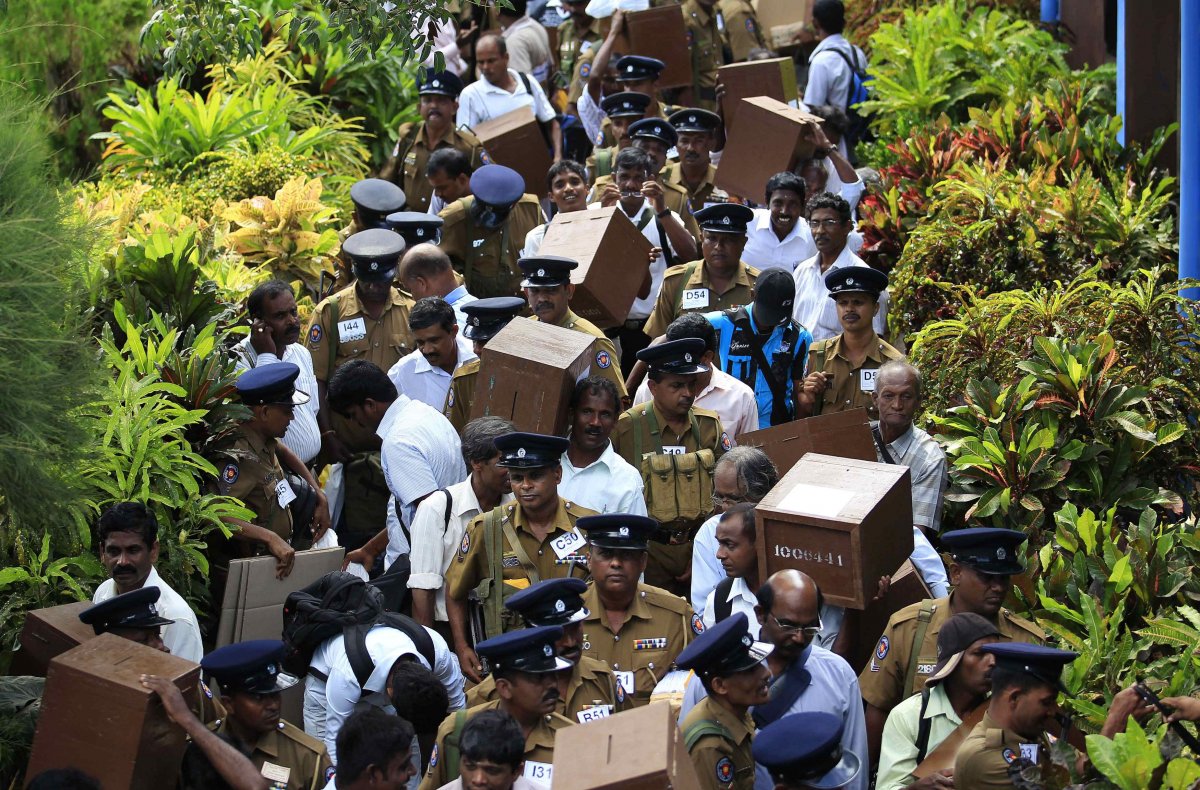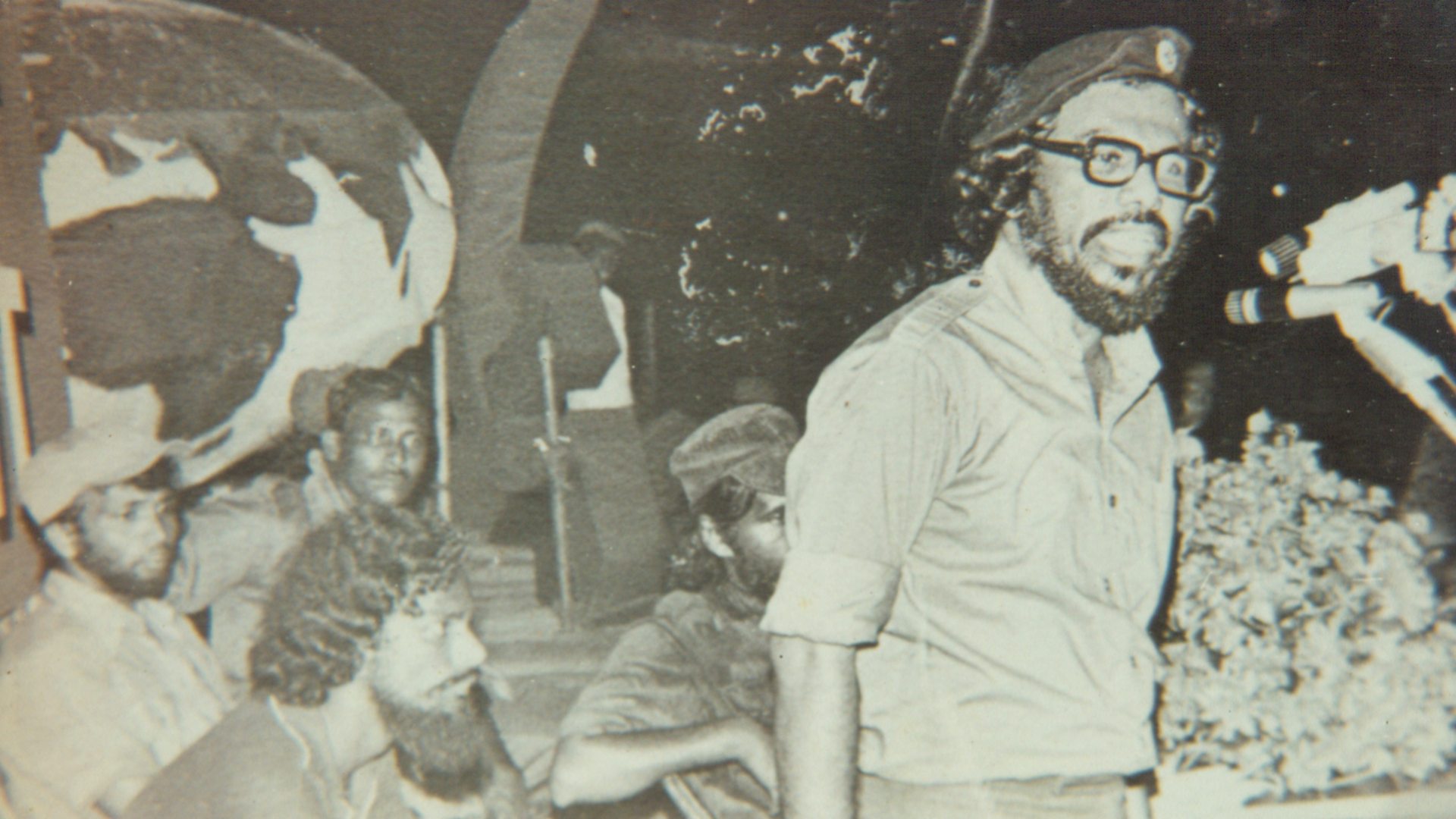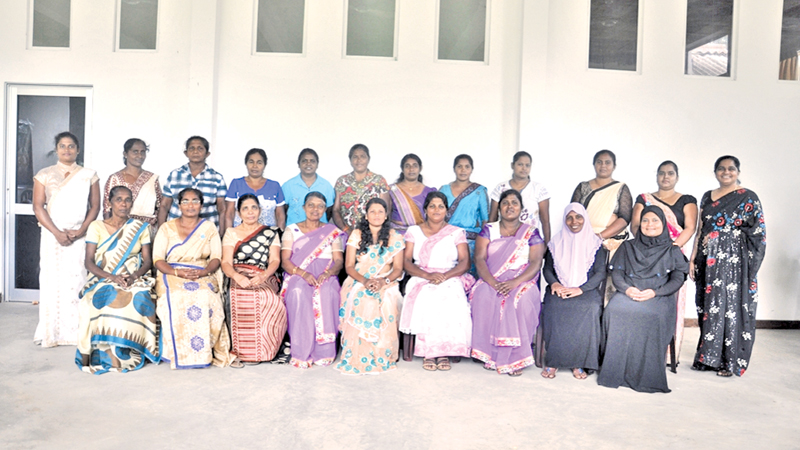
The Local Government Elections took place a few months back after a delay which was apparently caused by the political power struggles more than technical issues. The Provincial Council Elections are expected soon. However, there are once more rumors of delay, due to the political issues, more than the technicalities. The Elections Commission, meanwhile, is conducting awareness campaigns on the slogan “Vote is your right”, pointing out to the people that they should understand and stand up for their right which should be safeguarded in a democratic nation.
According to Elections Commission Chairman Mahinda Deshapriya, there is a marked lack of enthusiasm for the electoral process among the younger generation of Sri Lanka. It seems that the youth are disappointed about the political process for numerous reasons, he said.
This disappointment and disillusionment is not only limited to the youth. People of different ages and communities from around the country express their displeasure with politicians, more than the electoral system. Some people blame politicians for the difficulty in achieving true reconciliation in the country.
A tailor from Batticaloa District had this to say about the politicians and their impact on the future of the country.
“… if there are problems within races, our country’s development will be completely stunted. We don’t want that bitter experience again. We should live together without any racial, religious bias. Politicians should stop rousing problems. The speeches and projects, that they do for their own profit are the main reason for the tensions between races.”

He also pointed out a perception which is common among a sizable section of the society. He said that the politicians use the people for their own fights.
In such a society, it is natural that the people develop a certain disillusionment towards politicians.
Right To Participate
Sri Lanka has seen a number of political upheavals in the past seventy years after independence from the British. One reason for this is the lack of opportunity for certain sections of people to participate in the democratic process. Jinadasa, a native of Akuressa in Matara District, describes this aptly.
The 1980s was a dark age in Sri Lanka’s history. Jinadasa was a member of the Janatha Vimukthi Peramuna (JVP) before 1983. Following the 1983 Black July, the government banned three political parties on the grounds that they are responsible for the violence. While the bans on two parties were lifted after a short while, the JVP remained banned. Deprived of participation in the democratic process, the JVP took up arms. Jinadasa says that JVP might not have resorted to violence if they were given the right to participate in the democratic process.

The lack of opportunity for participation drives certain sections in society towards violence. Former US President John F. Kennedy saw this several decades back when he advised that “those who make peaceful revolution impossible make violent revolution inevitable.”
Sri Lanka gives opportunity for different political factions to participate in the democratic process. It is true that these opportunities may not be equal, given that certain political parties are financially stronger than others. However, the crux of the matter is, different voices and opinions could be heard. Currently there are 70 registered political parties recognized by the Elections Commission. While one can argue that this is a large number for a country like Sri Lanka, on the other hand, one can argue that this is a sign of the vibrancy in the political process of the country.
Female Representation
Recently, the debate on female representation reached a new level, with the newly introduced electoral system. Accordingly, the Local Government Authorities elected by popular vote should have 25 percent female representation. However, the electoral process has some loopholes which does not guarantee a 25 percent representation always. Nevertheless it is a system where female representation has seen a marked increase.
The loopholes and confusion about female representation made some people argue that female representation quota was a bad idea, with one News Editor of an English language newspaper insisting that no one wanted a female representation quota and that it was included on the insistence of NGOs. However, these people remain a minority and the Elections Commission and other parties have come out in defence of the importance of increasing women representation.
The fact of the matter is that Sri Lanka remains one of the worst when it comes to female representation in national legislature. Considering the percentage of female MPs, Sri Lanka’s Parliament is at the 180th place out of 189 national legislatures. This is a sad state of the affairs considering that 52 percent of Sri Lankan voters are women.
One woman in the village of Salampan, frustrated by the lack of interest towards the women’s issues, rejected all politicians and decided to contest in elections together with a group of other women. “All politicians will come to your doorstep and tell you that they would do this and do that. But after they leave, we never see them. After they get votes, they won’t see us either. It shouldn’t be like this” she insisted.
The 2018 Local Government Elections also saw an all-female independent group contesting for the Kantale Pradeshiya Sabha. The group, fielded by Eastern Women’s Organization had women of all communities in it. The leader of the group, R.G. Podimanike, explained why they decided to contest.

“The reason we did not to be affiliated to any party was that if we did, then we would have to work according to their agenda.”
Participate To Challenge The Process
Sri Lanka is one of the first countries where universal suffrage was introduced. Therefore, it is important to develop a thorough understanding of the political process. A mere rejection of the process will not help you change it. First and foremost, one has to vote, and vote with some understanding.
Before the 2017 September German General Election, President Frank Walter-Steinmeier pointed out the importance of voting.
“Voting is a civic duty. Go and vote!” the former foreign minister wrote in an opinion piece published in the Bild am Sonntag newspaper.
“Every vote counts – your vote counts,” Steinmeier said. “People who don’t vote allow others to decide the future of our country.”
People, as individuals, should understand the importance of their vote. This idea of the importance of the vote should be disseminated. Creating awareness and being proactive will help generate a more enthusiastic and more politically aware electorate.
One group of youth in Balapitiya took the urge for a change to the next level by contesting the Local Government Election in 2018, saying that they have a program to develop their area. While they received only a small percentage of the vote, the voice that was created has given new hope for a new beginning for a country where the youth will call on for change which creates a space for tangible development and reconciliation.
Once again, this brings us to the initial observation by Elections Commission Chairman Deshapriya. If the youth is showing an apparent lack of enthusiasm in general for the right to vote, there should be a process to change the attitude in the long run. This, in the belief of the EC Chairman, lies in creating awareness. Only through creating awareness about the power and importance of voting, an increasing number of youth could be encouraged to vote in a responsible manner.
Some people have the impression that their vote is not valuable, especially due to the disillusionment regarding the politicians in the country. However, they should understand that their vote is what elected the politicians in the first place. Therefore, the voters should be encouraged to vote more responsibly, giving proper value for their vote.
Cover Image: Officials carry ballot boxes. Image credit: Reuters
This article was brought to you by The Community Memorialization Project.







